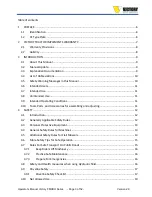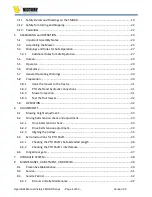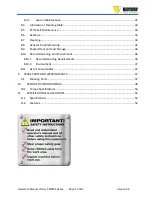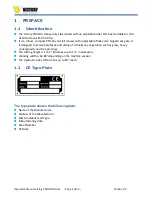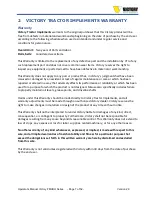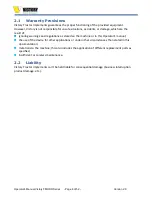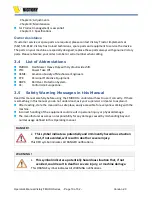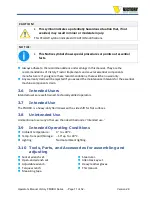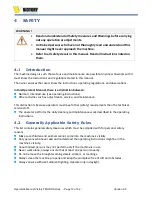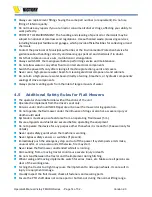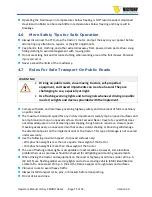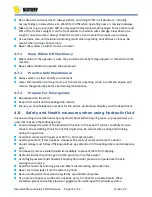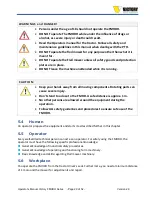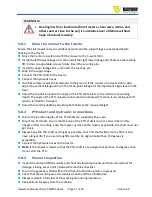
Operator’s Manual Victory FMHDH Series - Page 16 of 52 -
Version 2.0
◼
Be a safe and courteous driver. Always yield to oncoming traffic in all situations, including
narrow bridges, intersections, etc. Watch for traffic when operating near or crossing roadways.
◼
Make turns or go up or down hills at a low speed and gradual steering angle. Ensure that a least
20% of the tractor’s weight is on the front wheels to maintain safe steerage. Slow down on
a
rough or uneven surface. Always check the tractor
’s
User manual for proper use on slopes.
◼
Use extreme care and maintain minimum ground when operating near ditches or fences. Be
careful when turning sharp corners.
◼
Never allow riders on either tractor or mower.
4.7.1
Keep Riders Off Machinery
◼
Riders obstruct the operator’s view
; they could be struck by foreign objects or thrown from the
machine.
◼
Never allow children to operate the equipment.
4.7.2
Practice Safe Maintenance
◼
Always work in a clean and dry environment.
◼
Lower the implement to the ground, put the tractor in parking mode, turn off the engine and
remove the ignition key before performing maintenance.
4.7.3
Prepare For Emergencies
◼
Be prepared if a fire starts.
◼
Keep a first aid kit and fire extinguisher handy.
◼
Ensure you have telephone numbers for the doctor, ambulance, hospital, and fire department.
4.8
Safety and Health measures when using Hydraulic fluid
Anyone working on installations where hydraulic fluid, lubricating oil, grease, or preservatives are
used must observe the following rules:
◼
Avoid prolonged contact of the liquid with the skin. In the event of contact, carefully cleanse
the skin. Wear clothing that is free of this liquid. Also, be careful when eating and drinking
during the operation.
◼
Avoid skin contact with liquids over 60°C or hot machine parts.
◼
Avoid eye contact; if this happens, cleanse with plenty of water and contact a doctor.
◼
Liquid storage must follow official guidelines; pay attention to fire extinguishers and emergency
exits.
◼
Permanently remove spilled liquids immediately to prevent them from slipping.
◼
Hydraulic liquids should not get into the ground or in surface water.
◼
Avoid high-pressure fluids hazards. Escaping fluid under pressure can penetrate the skin
causing severe injury.
◼
Avoid the hazard by relieving pressure before disconnecting hydraulic lines.
◼
Never try to stop leaks from the system by hand.
◼
Have used liquids removed and recycled by specialized companies.
◼
Use a piece of paper or cardboard, not body parts, to check for suspected leaks. Wear
protective gloves and safety glasses or goggles when working with hydraulic systems.


